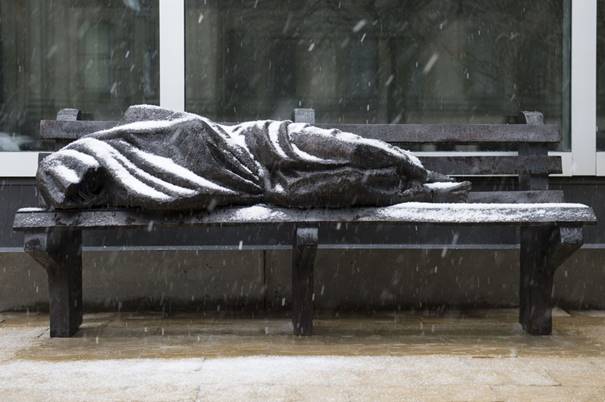As Jesus walked along, he saw a man blind from birth.
…
Jesus spat on the ground and made mud with the saliva and spread the mud on the man’s eyes,
saying to him, “Go, wash in the pool of Siloam” (which means Sent).
Then he went and washed and came back able to see.
The neighbors and those who had seen him before as a beggar began to ask,
“Is this not the man who used to sit and beg?”
Some were saying, “It is he.”
Others were saying, “No, but it is someone like him.”
He kept saying, “I am the man.”
Wow! Did you pick up on that? A man who had never ever seen anything his whole life became sighted and no one, not one person celebrated. Instead, his neighbors argued about who he was, while the man kept telling them; “I am he”. Not only did some of the neighbors fail to recognize him but they failed to hear him as well.
This man, we are told, was a beggar.
Why is it so hard to see and to hear others?
Is it because we do not want to see their suffering for fear that it might wound us? Is it because the plight of the person produces anxiety or anger in us? Is it because we are numb?
Richard Rohr reminds us that great suffering always leads to great love. And for God to touch us we have to see the suffering around us. We have to allow it to wound us and to inspire us to respond. “Love always means going beyond yourself to otherness. It takes two. There has to be a lover and a beloved. We must be stretched to an encounter with otherness, and only then do we know it is love.”[i]
In this time and place we are being called to open our eyes and see our interconnectedness, the beauty and the pain of this world.
Now is the time to open our eyes and recognize our neighbors.
Now is the time to listen to what others are saying
Now is the time to respond with compassion.
Let us stand in solidarity with each other, in celebration and in sorrow.
Through this encounter with the blind person Jesus invites us to deepen our love of God, ourselves, our neighbors, and even our enemies and participate in the healing of our world.
I invite you to widen your circle of compassion with a “Loving-Kindness Reflection”
Begin by finding a comfortable place to sit. If you are in a chair, place your feet firmly on the ground.
If you are on a cushion or on the ground make sure your shoulders are back and your back is straight.
Begin by consciously focusing on your breath.
Gently close your eyes.
Invite the Holy Spirit to be present.
Invite feelings of love, kindness, and peace towards yourself.
Think of a time that you felt completely accepted and loved.
As you breathe in and out focus on those feelings.
Say or think “May I learn to look at myself with the eyes of understanding and love.”
Slowly, in time with your breath repeat these words 4-7 times or set a timer for 2 minutes.
Now think of a person that is close to you. As you exhale, imagine sending feelings of loving kindness to that person.
Say or think “May I learn to look at her/him/them with the eyes of understanding and love.
Now think of a person who you are having a difficult time with. As you exhale, imagine sending feelings of loving kindness to them.
Say or think “May I learn to look at him/her/them with the eyes of understanding and love.”
End your practice by saying, “May I learn to look at myself with the eyes of understanding and love.”
Other phrases that are helpful are:
May I/you be happy.
May I/you be safe and protected.
May I/you be healthy and strong.
May I/you be peaceful and free from suffering.
Image: Homeless Jesus by Timothy P. Schmaltz
[i] Richard Rohr Meditation on Thursday March 19, 2020
